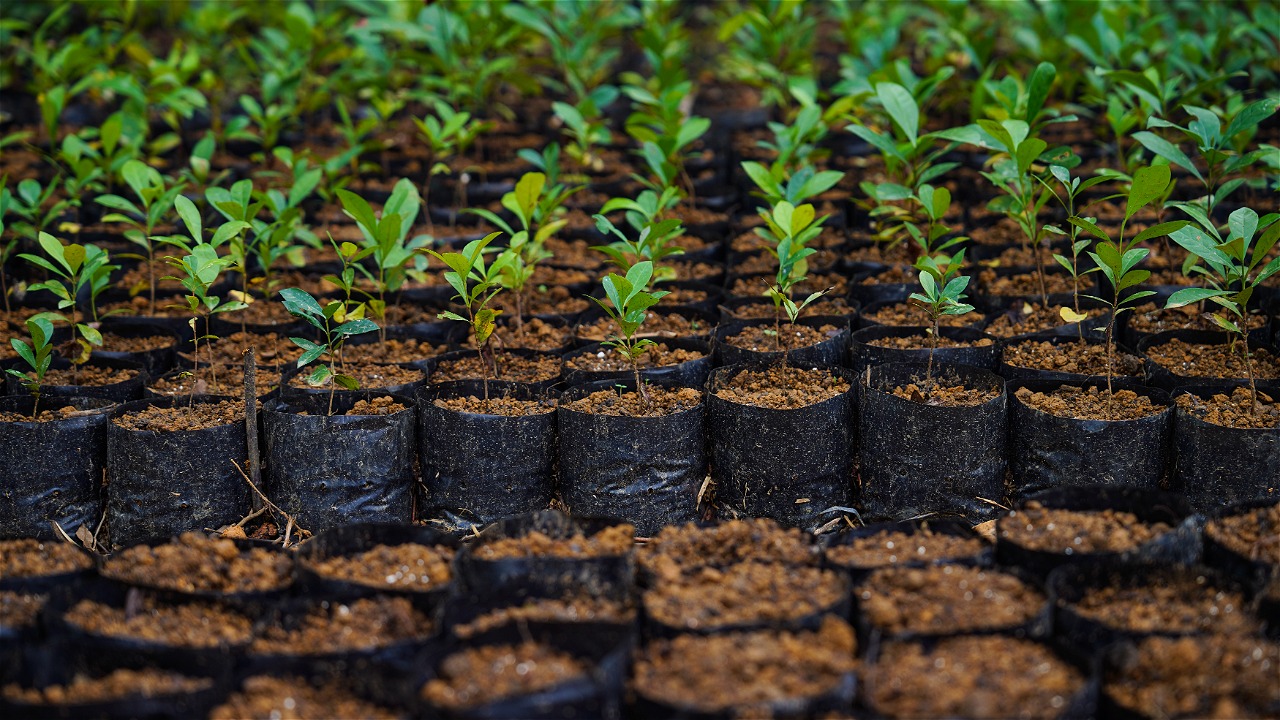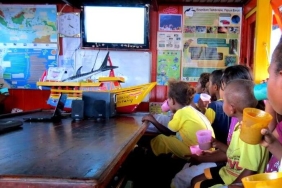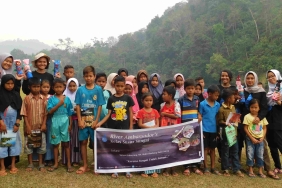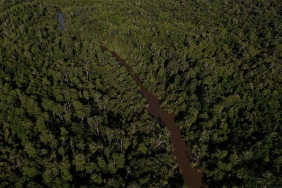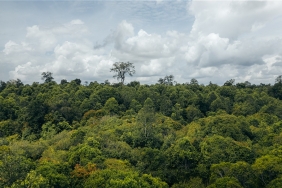WWF INDONESIA CONDUCTS PTK TRAINING AND INVITES ELEMENTARY SCHOOL STUDENTS TO RECYCLE PAPER AND MAKE COMPOST
By: Hijrah Nasir
Conservation education in schools is a milestone in instilling children's love for the environment from an early age. Therefore, through the Education for Sustainable Development program that was initially initiated in the Heart of Borneo region ten years ago, WWF Indonesia has provided assistance to teachers and elementary school students. On January 24-27, 2017, WWF Indonesia's ESD team held another activity, namely Classroom Action Research (PTK) Training "Education for Sustainable Development (ESD)" and School Assistance in Composting and School Gardens which took place in Ulubelu District, Tanggamus Regency. This activity was attended by teachers from 3 ESD-assisted elementary schools, namely SDN 1 Datarajan, SDN 2 Karangrejo, and SDN 1 Sukamaju. This activity also collaborated with UNILA AIESEC students and 3 other foreign students.
This activity is divided into two, namely classroom action research training aimed at teachers, and composting and paper recycling training for students in 3 assisted elementary schools. This PTK training is expected to develop teachers' capacity to design PTK, improve teachers' ability to raise environmental and conservation issues into research, and be able to publish PTK findings through conferences or journal education. While the teachers received the training, the students were given training on composting, paper recycling, and utilization of used goods. This training is expected to provide students with an understanding of organic and inorganic waste and its utilization as well as the importance of school gardens with organic farming.
Teachers from the 3 WWF-assisted schools received materials on the purpose of PTK, methods of classroom action research, how to determine the topic/theme of PTK, and write an activity journal based on the activities that have been carried out, identify 'good' research questions and formulate research questions based on the theme that has been determined, the trainees also managed PTK data, analyzed data, wrote PTK abstractions, drafted PTK instruments, and developed follow-up plans.
In a different place, the classroom atmosphere was bustling with students who were learning how to recycle paper, make compost fertilizer for the school garden, and make handicrafts from unused cardboard boxes / used newspapers. One by one, students tried to practice making recycled paper with natural dyes.
The 5th and 6th grade students were busy with composting training facilitated by Mr. Sugiman who is also a trainer for the coffee farmer field school in Ulubelu. During the 4-day training, students were invited to see the process of making compost and practice it themselves. They were also invited to make MOL (local micro organisms) which can help plants absorb nutrients in fertilizers better.
If students in grades 5 and 6 were busy making compost, then it was different with grades 3 and 4. They practiced how to recycle paper with newsprint and waste paper that they brought from home. One by one, the students tried to print the recycled paper on the board media which would then be dried. The dried recycled paper was then assembled into notebooks and decorated with other used materials. They were also invited to design crafts such as pencil boxes and bookmarks from the available used materials. At the end of the training, students were invited to watch a film on the theme of the environment and the importance of utilizing organic and inorganic waste in everyday life with the 3 principles of reduce, reuse, and recycle.
WWF Indonesia hopes that environmental education will become a learning material in schools. By instilling values about the importance of protecting the environment, it is hoped that the spirit of the nation's next generation will grow for a better earth life in the future.

